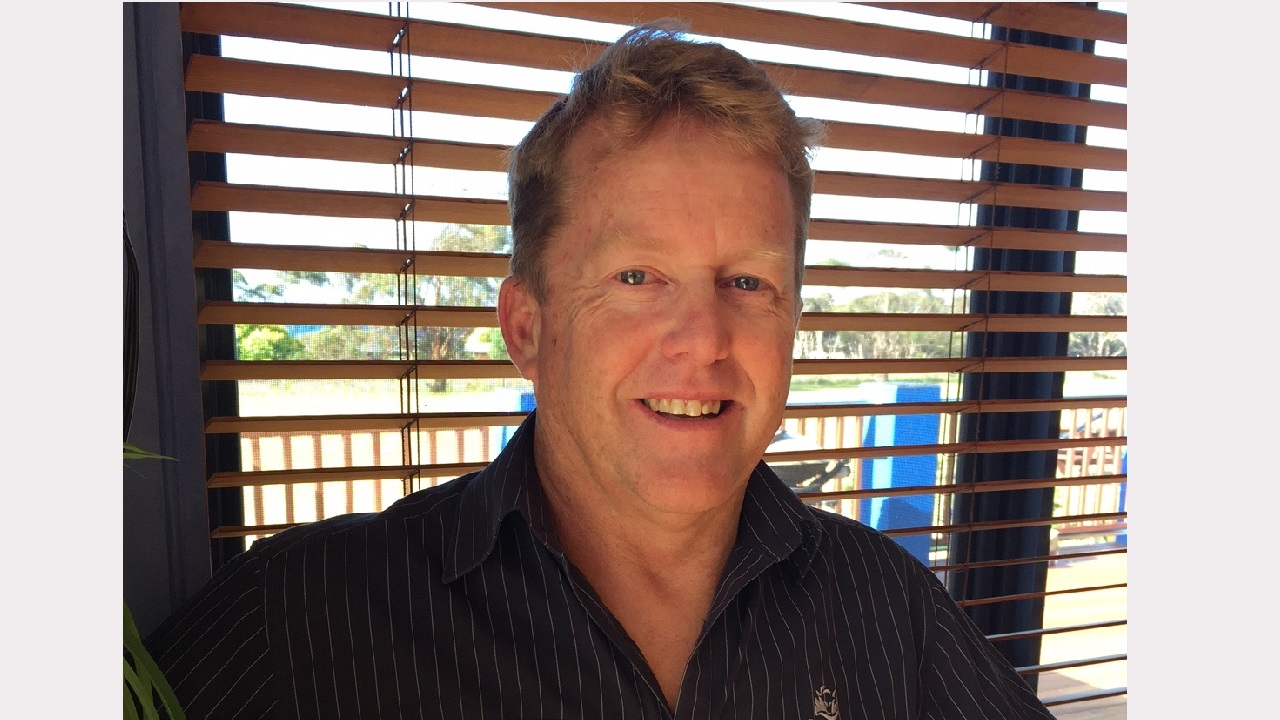From plastering to palliative care - one happy tradie’s big career change
From plastering to palliative care - one happy tradie’s big career change
by Heather Wiseman
Saturday, February 07, 2015
Luke Overton, 52, worked in construction for 30 years before starting a nursing career and heading into palliative care. He explains the rewards he has found, caring for people at the end-of-life within the community.
When Luke Overton finished Year 10 at school in Tasmania he was clear about two things he wanted for his future. He wanted to earn money and ride motor bikes.
His father was quick to step in with a simple, practical solution to this lack of career direction.
“He got me a job as a plasterer, so he woke me one morning and said ‘You’re off to work’.”
Over the next 30 years, Mr Overton learned five trades, but work was tough on his body and his enthusiasm was waning. He tried new things – got his pilots’ licence and scuba licence and did a diploma in occupational health and safety – but they did not sate his enthusiasm for learning.
Then, a chance chat with a neighbour swung his life in an entirely new direction. Mersey Hospital was looking for casual orderlies. Would he be interested in applying?
“I thought, that would be a nice change,” says Mr Overton, who scored the job and stayed in it for 10 years.
He maintained his trade work, getting up at 6am and working until 12pm. He then had a break before doing an 8-hour shift at the hospital, transporting patients on the wards, picking up bloods from pathology, performing CPR and working with trauma teams in the event of code blue.
Plaster casts in the emergency department also fell within his remit. Needless to say, he excelled.
“The second one I did, the lady said ‘My goodness, you are good at this. How long have you been plastering?’,” says Mr Overton.
“I said 25 years. I didn’t say it was walls and ceilings.”
During this time, he supported his wife Allison, as she made the transition from hairdressing to working in aged care. They both applied to do nursing, and were accepted, but Mr Overton let the opportunity sit for six years, daunted by the prospect of study, before eventually signing up for the three-year degree and achieving a high-credit average.
Shortly after his first-ever job interview, he started work in emergency at Launceston General Hospital. He transferred to the emergency department at Burnie's North West Regional Hospital, before opting for further training through Tasmania’s Better Access to Palliative Care project.
In July this year, he landed a job as a registered nurse at the Tasmanian Health Service – North West Region, providing outreach palliative care services.
“As an orderly, I had worked with the hospital morgue and palliative patients so death and dying wasn’t uncommon to me. But this new role was interesting and a bit of an eye opener. It was a slower pace to the emergency department and a good opportunity to really get into the nitty gritty of how medications work, broadening my knowledge of pathophysiology of the body and using your assessments skills differently. I’d really like to stay working here.
“You get to know people who are dying, what they did before they retired and got sick. And you get to meet their children and grandchildren. It’s a unique opportunity to get to know people and see life in a different way.
“Certainly, it hones your communication skills and opens your eyes to a lot of different things in life. We all know we’re going to come to the end at some time, but when you come across people who are dying it’s a privilege to be with them and hold their hand and talk about personal emotional issues.
“I’m a bit of a softie really, but if it doesn’t put a bit of a tear in your eye then you’re a bit of a hard case, I reckon.”
Mr Overton is working in one of three teams which rotate across working in local homes, homes further afield and residential care facilities. Each team includes consultants and registrars, who also provide palliative care support to hospitals, an occupational therapist, social worker and a pharmacist.
“We work with the GPs, who remain the primary contact with our clients, and we bounce off them,” he says.
“It’s a very multidisciplinary team and we have to be on the lookout for carer stress – you look at their care as well as the client’s and you make sure they’re not falling by the wayside or being neglected. If the family is stressed, so is the patient.”
Having worked with Mr Overton for four months, nurse of 30-years Gabrielle Clarke says her new colleague faces a steep learning curve, given the specific skills required to deliver palliative care in people’s homes. However, Mr Overton is willing to learn, happy to ask when in doubt, and keen to learn protocols and scales that govern work practices.
“His ethics and values are just honourable, just lovely. You know what you’re getting; he is upfront, honest and caring. He is lovely and he has a good sense of humour,” Ms Clarke says.
“It depends on how you look at your life, but I think he is finding his journey and why he is meant to be here. He is only junior and at the beginning of that journey, but I encourage him to continue. He is on the right path.”
